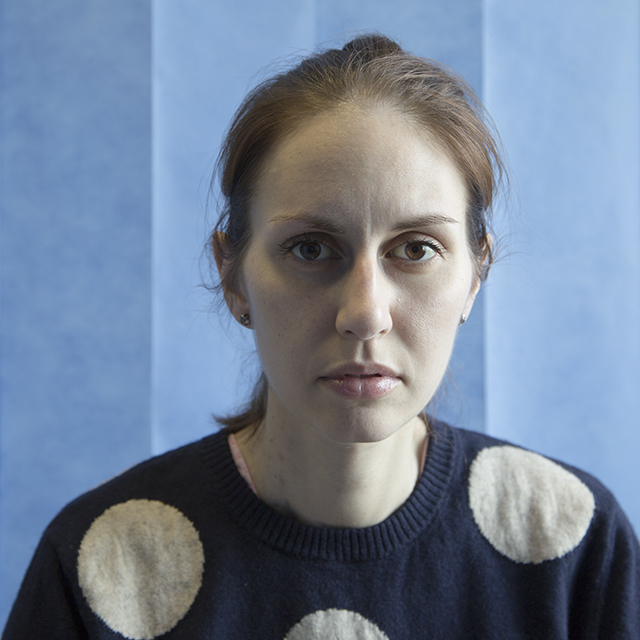My symptoms were worsening by the day
Nicola
Nicola
I had been having my liver investigated over the past few months of this year. And then I waited for a month for an MRI scan, but by the time that MRI scan finally came around, I had deteriorated quite a lot. So we went to A&E the same day, and I haven't left the hospital since. So it’s my 20th day.
Basically my bloods had changed really rapidly within the space of a week, and I was turning yellow, and lots of my symptoms were worsening by the day. So, once they had admitted me, I was here and they just ran back-to-back tests in quick succession, and within two days I had a biopsy, and the results from that showed that I had Wilson’s disease. [emotional pause] Sorry. [long pause] ... which is a very rare ... oh, sorry, I didn't want to get upset [laughs]. I’ll start again. Wilson’s disease is a very rare genetic disease, which your liver can’t process copper. So I’ve actually had it since I was born. But it was what’s called acute Wilson’s disease, where it degenerated at a really fast rate.
So, probably within 6 weeks, I went from being fairly fit and healthy to having a transplant. So everything happened really quickly. But, yeah, I guess I thought I would just get sorted out with maybe some medication and things, but once I started hearing about the transplant, and we realised how it was a lot more serious than we thought, and basically they just had to keep me going until the appropriate donor became available. And I think I found out that I had Wilson’s on the Friday, and then I believe I went into surgery the following Friday. So a week later.
The right donor came up, which was incredible. And they did run extensive tests on it to ensure it was going to be fine. My transplant, the sort of initial surgery, went quite well. But the liver had then, I think, a haematoma or a bleeding or something, which I didn’t really learn about until much later when I was woken up, that I'd actually gone back, for a second surgery, a day and a half later. So I spent 6 days, 6 ½ days in ICU. Sorry
Basically my bloods had changed really rapidly within the space of a week, and I was turning yellow, and lots of my symptoms were worsening by the day. So, once they had admitted me, I was here and they just ran back-to-back tests in quick succession, and within two days I had a biopsy, and the results from that showed that I had Wilson’s disease. [emotional pause] Sorry. [long pause] ... which is a very rare ... oh, sorry, I didn't want to get upset [laughs]. I’ll start again. Wilson’s disease is a very rare genetic disease, which your liver can’t process copper. So I’ve actually had it since I was born. But it was what’s called acute Wilson’s disease, where it degenerated at a really fast rate.
So, probably within 6 weeks, I went from being fairly fit and healthy to having a transplant. So everything happened really quickly. But, yeah, I guess I thought I would just get sorted out with maybe some medication and things, but once I started hearing about the transplant, and we realised how it was a lot more serious than we thought, and basically they just had to keep me going until the appropriate donor became available. And I think I found out that I had Wilson’s on the Friday, and then I believe I went into surgery the following Friday. So a week later.
The right donor came up, which was incredible. And they did run extensive tests on it to ensure it was going to be fine. My transplant, the sort of initial surgery, went quite well. But the liver had then, I think, a haematoma or a bleeding or something, which I didn’t really learn about until much later when I was woken up, that I'd actually gone back, for a second surgery, a day and a half later. So I spent 6 days, 6 ½ days in ICU. Sorry
